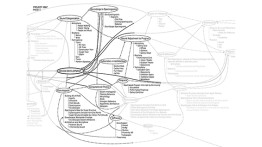CYBERNETICS: state of the art
Wednesday, December 13, 2017, 2 - 3:30pm

Guest Lecture in M. Arch II Studio
Liss C. Werner is principal of ‘Tactile Architecture – office für systemarchitektur’. She is an Assistant Professor at Technische Universität Berlin for computational architecture and sustainable urban design and her research is driven by cybernetic principles and engages with architecture and digital theory. Between 2003 and 2016 Werner acted as design studio master and lecturer (Nottingham, Dessau, Innsbruck) and Guest Professor at Carnegie Mellon and Taylor’s University Malaysia. She co-chaired conferences on design strategies in an age of human-machine-collaboration, exhibited at the Venice Biennale 2012 and is invited to exhibit at the Malay Biennale 2017 and Venice Biennale 2018. Werner is the editor of ‘[En]Coding Architecture’ (2014), and ‘Cybernetics: state of the art’ (2017) and author of ‘Origins of Design Cybernetics’ and ‘Feedback Cybernetics Netgraft’. She was educated at University of Westminster, RMIT and The Bartlett. In 2017,Liss C. Werner was awarded to be a ‘Young Digital Changer’;her company received the German Enterprise Award for ‘Best for Modern Urban Architecture & Design 2017’.
Room 315F. Open to current students, faculty, and staff.
Located at 7 East 7th Street, between Third and Fourth Avenues




